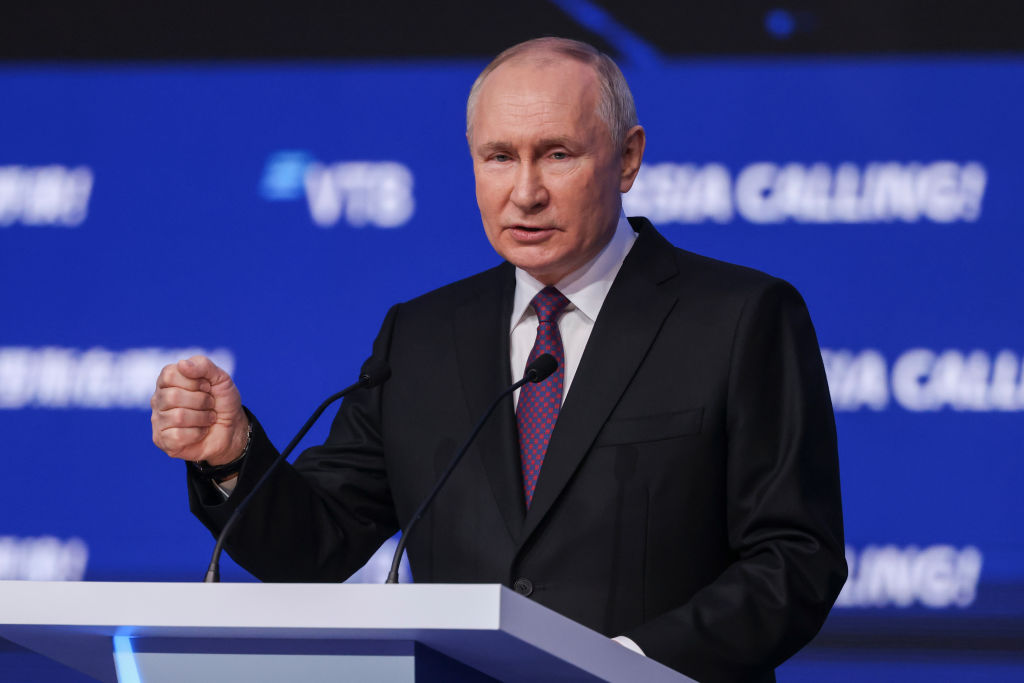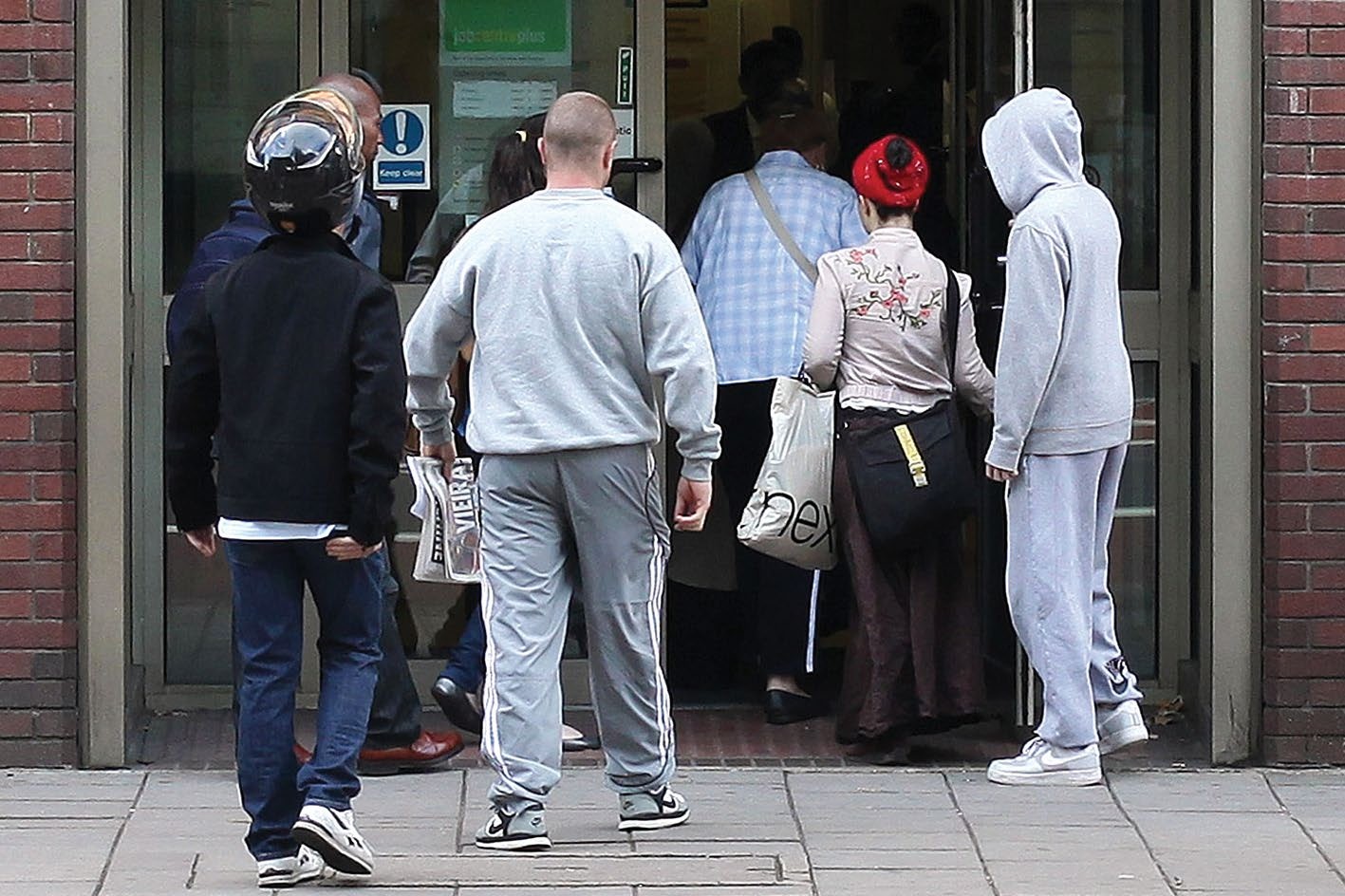Why Russia's economy is doing better than predicted
Sanctions were supposed to strangle Russia’s economy, but it seems to be thriving. What’s going on?

Get the latest financial news, insights and expert analysis from our award-winning MoneyWeek team, to help you understand what really matters when it comes to your finances.
You are now subscribed
Your newsletter sign-up was successful
Want to add more newsletters?
Compared with expectations widespread in the West two years ago – that sanctions and the draining effects of Vladimir Putin’s Ukraine war could lead to economic collapse – the Russian economy is doing strikingly well.
Twelve months ago, Western analysts expected an overall contraction over the course of 2023. Instead, Russia’s economy grew far more strongly than Western nations (including the UK), with GDP up by more than 3%. Higher oil prices and a ramping-up of exports to China and India have helped protect Russia from the catastrophe many predicted.
The withdrawal of Western firms has opened up new niches for Russian firms, while capital controls have left them with no option but to invest in Russia. And massively increased defence spending – including on soldiers’ wages and compensation to families, as well as arms manufacturing – has helped fuel a mini-boom in poorer parts of the country.
Try 6 free issues of MoneyWeek today
Get unparalleled financial insight, analysis and expert opinion you can profit from.

Sign up to Money Morning
Don't miss the latest investment and personal finances news, market analysis, plus money-saving tips with our free twice-daily newsletter
Don't miss the latest investment and personal finances news, market analysis, plus money-saving tips with our free twice-daily newsletter
Can that really be sustainable? Figures from Russia’s finance ministry suggest the government’s overall fiscal stimulus stands at around 5% of GDP, more than the one implemented during the Covid-19 pandemic. At some point, all that has to be paid for. But for the time being, the Russian president is busily building a wartime economy.
In the 2024 budget, military spending will hit 6% of GDP for the first time since the Soviet era – accounting for 39% of the Kremlin’s budget (and squeezing out funding for healthcare and social welfare). For now, rather than collapse or stagnation, the biggest issue is that the economy is running “dangerously hot”, says The Economist. Unemployment is at its lowest on record (less than 3%), nominal pay has surged 15% year on year, and inflation is up to about 8% – forcing the central bank to hike interest rates to 16%.
Is Putin winning? It’s far too early to conclude that. In a stern riposte to a crop of year-end opinion pieces framing Putin as one of 2023’s “winners”, two Yale academics took to the pages of Foreign Policy just before Christmas to urge more scepticism about Russia’s economic prospects. In their piece, Jeffrey Sonnenfeld and Steven Tian laid out seven ways in which, they say, the war and associated exodus of Western companies is hurting the Russian economy.
- First, talent flight. Since the February 2022 invasion, at least a million highly skilled workers have fled the country, by some estimates accounting for 10% of Russia’s entire technology workforce, and 33% of its millionaires.
- Second, capital flight. According to the Russian Central Bank’s own assessment, a record $253bn in private capital was moved out of Russia in the 16 months following the invasion, four times the previous level of outflows.
- Third, the loss of Western technology and know-how has damaged key sectors such as technology and energy exploration. Rosneft, for example, has been forced to spend nearly $10bn extra on capital expenditure, adding about $10 of additional costs to each barrel of oil it exports.
- Fourth, the withdrawal of about $250bn in foreign direct investment, and the near-total halt in new FDI into Russia, compared with about $100bn annually before the war.
- Fifth, the loss of the rouble as a convertible and exchangeable currency.
- Sixth, the loss of access to global capital markets.
- Finally, the “massive destruction of wealth and plummeting asset values”: the values of some state-owned enterprises have slumped 75% since the invasion, and many private-sector assets have halved in value.
Why is the Russian economy growing?
To date, the war machine has been funded by the cannibalisation of now state-controlled enterprises and the economy underwritten by government spending. But that’s not a viable economic strategy for anything other than the very short term. Sanctions have not collapsed Russia’s economy, thanks to China, India, and the “parallel markets” whereby goods are shipped in via friendly countries such as Turkey and Kazakhstan. But shortages are mounting, of goods as varied as tyres, printing paper, aeroplane parts and medicines. Already, according to analysis by the US Treasury, Russia’s economy is 5% smaller than it would have been had Putin not launched his war.
Rachel Lyngaas, the department’s chief sanctions economist, said the combination of war, sanctions and Moscow’s policy response was “putting Russia’s economy under considerable economic strain” by “contributing to rapidly growing expenditures, a depreciating rouble, increasing inflation, and a tight labour market, reflecting a loss of workers”. Key factors hurting Russia include emigration, difficulty in sourcing high-tech imports, forced re-orientation of supply chains and a lack of access to Western markets.
What will Putin do next?
Once he’s got March’s presidential election out of the way, Putin is set to expand the scope of civilian mobilisation, says Roger Boyes in The Times. Russia’s ability to replenish its forces in drawn-out, attritional warfare is its key advantage over Ukraine. But that will only exacerbate the already serious labour shortages in the civilian economy – and increasingly affect the military-industrial sector, too. Already the defence industry, which employs about two million engineers and other workers, is short of 400,000 people.
It’s the constraints on supply factors that will be crucial, agrees Liam Peach of Capital Economics. Peach puts the hit to Russia’s GDP so far at about 3%, rather than the US Treasury’s 5%, but more importantly, “supply constraints are more binding now than they have been for many years”, he says.
“One of the biggest and perhaps longer-lasting consequences of the war and sanctions is that the large reduction in Russia’s supply capacity in the past two years has significantly limited the ability of the economy to grow without generating inflation pressures.” So “although the economy has coped with sanctions so far, a bigger war effort could be destabilising for Russia’s macro stability”.
For Putin, “winning” re-election in a stage-managed vote will be easy. Managing its economy in the coming years will be much harder.
This article was first published in MoneyWeek's magazine. Enjoy exclusive early access to news, opinion and analysis from our team of financial experts with a MoneyWeek subscription.
Related articles
- Max King’s 2023 review and 2024 outlook
- Elvira Nabiullina: Putin's central bank chief blindsided by Russia's war on Ukraine
- EU tightens the noose on Russia
Get the latest financial news, insights and expert analysis from our award-winning MoneyWeek team, to help you understand what really matters when it comes to your finances.
-
 UK small-cap stocks ‘are ready to run’
UK small-cap stocks ‘are ready to run’Opinion UK small-cap stocks could be set for a multi-year bull market, with recent strong performance outstripping the large-cap indices
-
 The scourge of youth unemployment in Britain
The scourge of youth unemployment in BritainYouth unemployment in Britain is the worst it’s been for more than a decade. Something dramatic seems to have changed in the labour markets. What is it?
-
 In defence of GDP, the much-maligned measure of growth
In defence of GDP, the much-maligned measure of growthGDP doesn’t measure what we should care about, say critics. Is that true?
-
 Reach for the stars to boost Britain's space industry
Reach for the stars to boost Britain's space industryopinion We can’t afford to neglect Britain's space industry. Unfortunately, the government is taking completely the wrong approach, says Matthew Lynn
-
 "Botched" Brexit: should Britain rejoin the EU?
"Botched" Brexit: should Britain rejoin the EU?Brexit did not go perfectly nor disastrously. It’s not worth continuing the fight over the issue, says Julian Jessop
-
 'AI is the real deal – it will change our world in more ways than we can imagine'
'AI is the real deal – it will change our world in more ways than we can imagine'Interview Rob Arnott of Research Affiliates talks to Andrew Van Sickle about the AI bubble, the impact of tariffs on inflation and the outlook for gold and China
-
 Tony Blair's terrible legacy sees Britain still suffering
Tony Blair's terrible legacy sees Britain still sufferingOpinion Max King highlights ten ways in which Tony Blair's government sowed the seeds of Britain’s subsequent poor performance and many of its current problems
-
 How a dovish Federal Reserve could affect you
How a dovish Federal Reserve could affect youTrump’s pick for the US Federal Reserve is not so much of a yes-man as his rival, but interest rates will still come down quickly, says Cris Sholto Heaton

